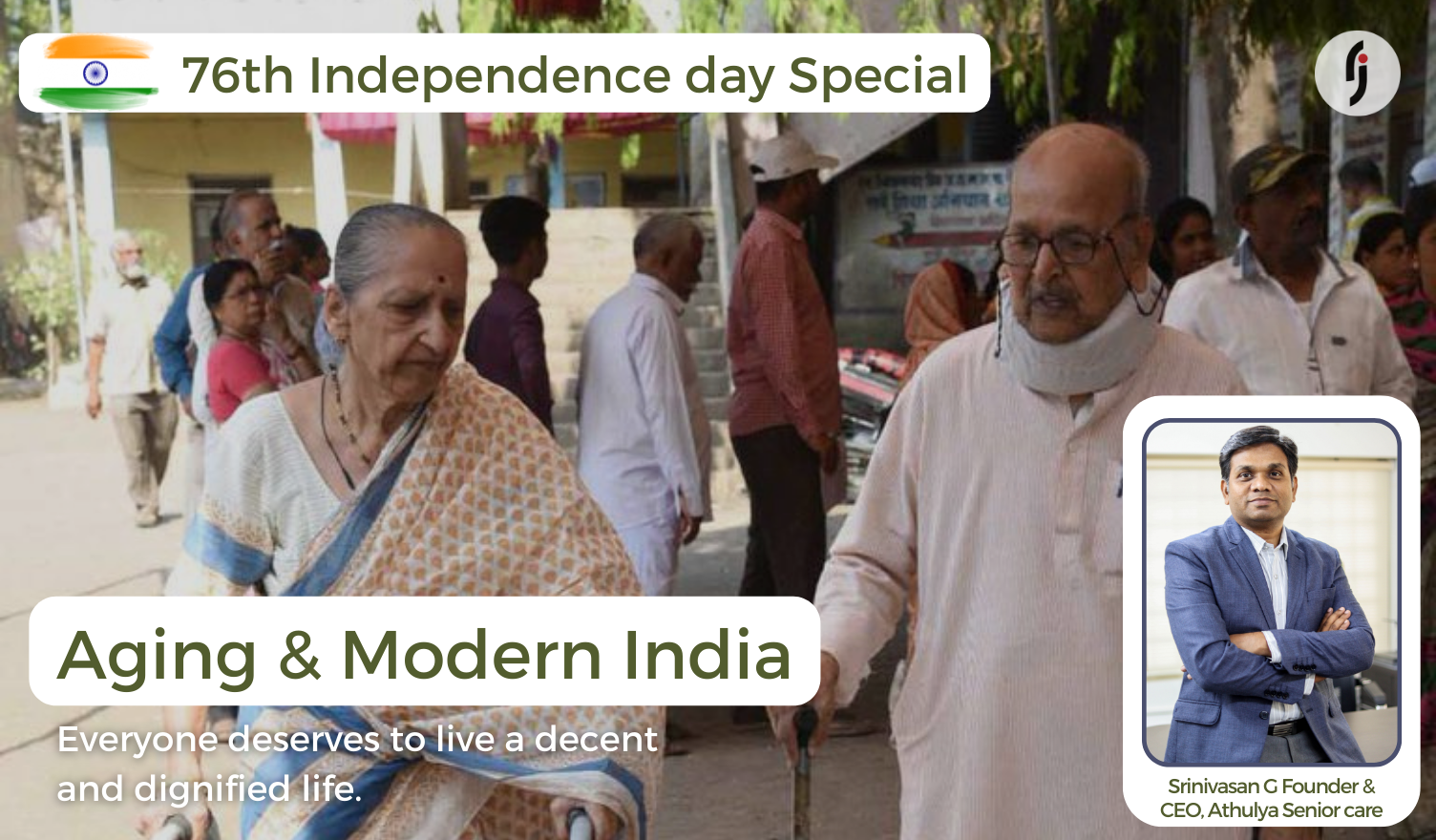emember the Independence Day from the past? Flag hoisting is the first thing that unfurls whenever we think of Independence Day. We can think of more about the stories of independence and the struggles our country faced to declare independence. When you read the Independence struggle story, you would have automatically thought of your grandparents. Good days, right? Not just on Independence Day, but every day in our childhood is filled with many little magical moments bestowed by our grandparents.
In the olden days, in our country, family members were closely knit with each other through the joint family system. Three generations of people in a family lived together, combining the old and the young. The older people in the family played an important part in the family taking centre stage.
Over the years, our Indian society has undergone a great transition. Under the influence of modernization, there has been a disintegration of the joint family system. However, other factors contribute to the evident transitions. Industrialization, urbanization, technical and technological change and globalization are also some of the factors that have led to innumerable, significant changes in many ways. One of the age categories that has been greatly impacted is the silver community.
Generally, the age of 60, according to the World Health Organization, is considered the age of transition. Ageing has always been a subject of speculation. Various people have concluded that ageing is an outcome of biological, demographic, sociological, psychological, or other processes.
To go by the definition, the onset of the aged stage of life begins when the productive contribution declines and one tends to be economically dependent. People between the ages of 60-75 depend on others for various reasons. With the emergence of the nuclear family setup, the declining coping capacity of the young and elderly, lack of infrastructure, non-utilization of health care, lack of social support, loneliness, idleness, abuse, neglect, lowered self-esteem, and economic insecurities are some of the factors by which the elderly are affected and robbed of their independence. These factors have also led to the emergence of the geriatric care sector.
The Government of India, noticing the growing population of senior citizens, has taken various measures to meet their needs. NSSOs 42nd round (1986-87), 52nd round (1995-96), and 60th round (Jan-June 2004) were directed towards elderly health and social issues. The United Nations observed 1999 as the international year for Older Persons. Following this, on January 13th, 1999, the Government of India declared the National Policy for Older Persons for accelerating welfare measures and empowering the elderly in ways beneficial to them. The policy focuses on providing financial security, health care, shelter, welfare, and other needs of older persons, such as protection against abuse and exploitation.
True independence for the elderly can be attained only when a new “architecture” for ageing is created and “a Society for all Ages” is formed.
This Independence Day, let’s not forget this powerful saying and pledge to make this society senior-friendly.
Srinivasan G
Founder & CEO, Athulya Senior care
Tags:
76th independence day
independence day
independence day 2022
independence day articles
indian independence day
modern india
senior citizens
Contact
Our Address
Delhi-110092
Email Us
richa.rjassociates@gmail.com
Call Us
011 35587932













